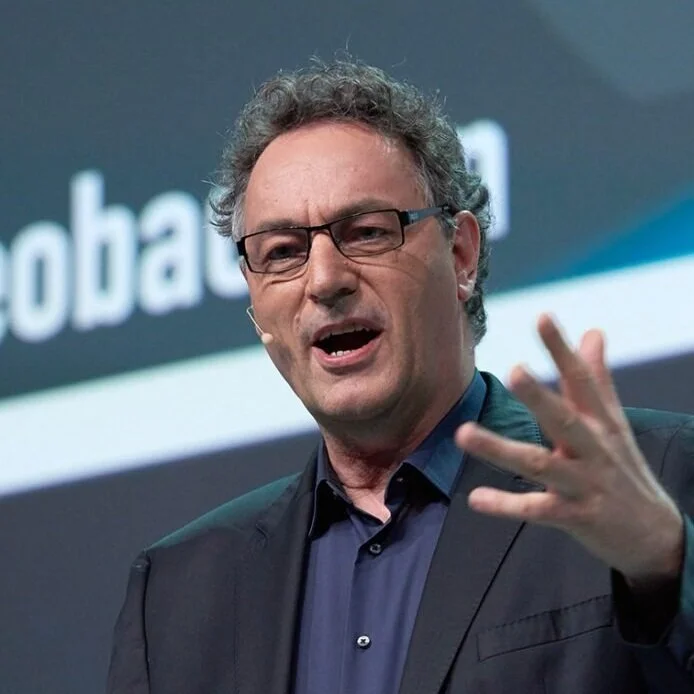Thought Leaders Thinking: Gerd Leonhard
People, planet, purpose, and prosperity; when Gerd Leonhard pictures the world to come, he hopes these will be its pillars. In our recent discussion with the famed author and speaker, we unpacked this vision and much more.
Mr. Leonhard is, of course, well equipped to speak about the world as it might one day be. A futurist and humanist, he “foregoes techno-optimism in favour of progressive humanism”. He outlined this stance to powerful effect in his seminal 2016 book Technology v. Humanity.
Now, in this new COVID reality, he is observing the acceleration of technological and social trends with tremendous implications for the future. In his view, many of these trends should be rethought—and, in many instances, regulated—for the good of humanity.
“Clearly our technology can be heaven or hell—and that starts with the hammer. A carpenter has a hammer, so he goes out in the street and kills somebody, but then builds a house. That's not the hammer’s fault, right? We have artificial intelligence that can go out into cyberspace and kill people. Or we can build an environmental control system. Technology is morally neutral until we use it, as William Gibson said.”
Rather than preach a Luddite gospel or paint romantic pictures of the past, Mr. Leonhard is “a great believer in the power of technology and science.” He merely advocates for asking “what do we want from technology?” instead of blindly pursuing outcomes like GDP.
“That hasn't gotten us to a very good place because growth can't be the only objective. So, Facebook makes $156 million profit a day. But in return it’s data mining every living person on the planet and Mark Zuckerberg is the most powerful person on Earth.”
“Imagine 10 years from now: we're going to have 9 billion people on the internet at 10G and 300 trillion connected devices. What if we don't find a way to govern it with social objectives and public policy? And then we get in a situation where technology is just growing exponentially but we haven't really made it work for humans, we've made it work for money?”
Mr. Leonhard is confident that an alternative to the current “free for all” technology regime can be found. He points to nuclear weapons management as a useful precedent. “We had two of them and we said if we have more nuclear weapons, we're toast. It took 12 years [as a global community] to figure out how to get on the same page, but we did.”
Protecting ourselves from a potential technological “hell” is one thing, but what does a tech-facilitated “heaven” look like? This is where people, planet, purpose, and prosperity come in.
“Now we have to basically think of a new strategy that's not based on growth, but on a holistic view of benefit. I think we're already seeing this happening. There's a new stock market in America called the Long-Term Stock Exchange that lists B Corp companies like Patagonia that are going to pay dividends and their executives based on those four pillars. [By contrast,] I think that, largely, the business model of humanity is fraud and it's not fit for the future. But if we change the business model, everything else will change.”

